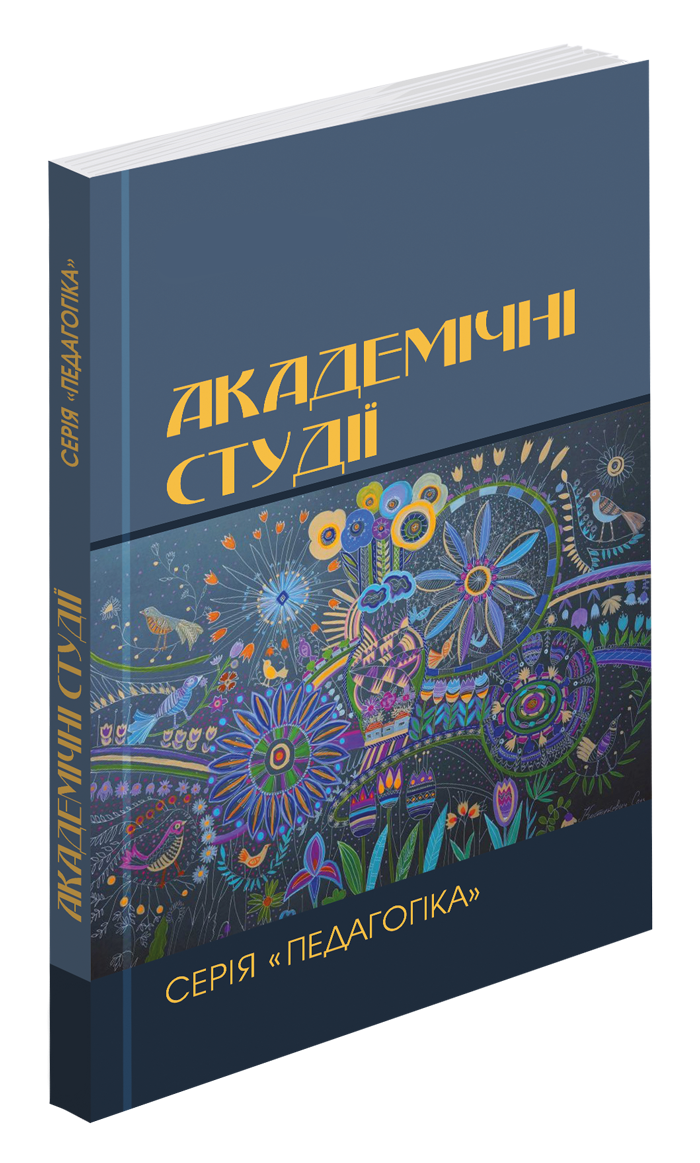Анотація
В останні роки на освітню практику значно вплинуло широке поширення сучасних технологій з усіх сфер суспільного життя. Суспільство потребує людини, яка здатна не тільки засвоювати та ретранслювати отримані знання, але й інтегрувати ці знання та застосовувати їх для одержання нових знань, орієнтованих на розуміння основних закономірностей перебігу явищ та процесів, загального уявлення про світ природи. Відтак, реформаційні нововведення в освіті «спрямовано на зміни у змісті, формах і методах навчання, осучасненні середовища навчання, що відповідає вимогам ХХІ століття» [Бурий 2022: 3]. Ці теоретичні підходи стали ключовими інструментами освіти в новому тисячолітті та визначальними основами науково-методичного супроводу як процесу взаємодії: демократичність – можливість урахування різних підходів, поглядів, колегіальність в ухваленні певного рішення; ситуація вибору – створення декількох варіантів програм, моделей діяльності, технологій, які забезпечують передумови для свідомого вибору; самореалізація – розкриття особистісного потенціалу кожного учасника педагогічного процесу; співтворчість – спільна діяльність суб’єктів, які прагнуть досягти нових кількісних і якісних результатів [Сорочан, 2012: 3].Дослідження показують, що традиційний зміст і форми навчання, засновані на «до комп’ютерних», паперових технологіях, погано узгоджуються зі спробами навіть фрагментарного використання комп’ютера на заняттях.Інформаційні ж технології містять якісно нові можливості для навчання і розвитку студентів. Цим обґрунтована необхідність розроблення, впровадження і застосування сучасної методичної системи інформаційних педагогічних технологій, яка є індивідуальною для кожного викладача природничо-математичних дисциплін.Наукова новизна статті полягає в тому, що дисципліна «Фізика і астрономія» є основною дисципліною інтегрованого курсу «Природничі науки» для підготовки фахових молодших бакалаврів на основі базової загальної середньої освіти зі спеціальності 122 Середня освіта (Комп’ютерні науки), а тому необхідність підвищення якості підготовки майбутніх фахівців такого профілю ставить посилені вимоги до змісту і форми викладення навчального матеріалу на заняттях природничо-математичних дисциплін і, зокрема, фізики і астрономії. Суттєве поліпшення підготовки майбутнього фахівця за спеціальністю «Комп’ютерні науки», посилення її прогностичної спрямованості можливе лише за умови розробки теоретичних і методичних основ використання інноваційних технологій навчання інтегрованого курсу «Природничі науки» (Фізика і астрономія).
Посилання
Бурий А. В., Цогла О. П. Інноваційне та традиційне у педагогічних технологіях навчання фізики й астрономії в сучасній українській школі: навч. пос. Львів: КЗ ЛОР «Львівський обласний інститут післядипломної педагогічної освіти», 2022. C. 130-137.
Гуревич Р. До питання про інформаційні технології в навчально-виховному процесі. Сучасні інформаційні технології та інноваційні методики навчання у підготовці фахівців: методологія, теорія, досвід, проблеми: зб. наук.пр. Киів-Вінниця : ДОВ Вінниця, 2000, С. 165.
Коновальчук І. І. Теорія і технологія реалізації інновацій у загальноосвітніх навчальних закладах: монографія. Житомир: Вид-во ЖДУ ім. І. Франка, 2014. C. 457– 464/
Носенко Т.І. Інформаційні технології навчання: нач. пос. Київ: Київ. ун-т ім. Бориса Грінченка, 2011. 184 c.
Зайченко І. В. Педагогіка: навч. пос. Вид. 2-е. Київ: «Освіта України», «КНТ», 2008. 528 с.
Пєхота О. М., Кіктенко А. З., Любарська О. М. Освітні технології: навч. – метод. посіб. Київ: А.С.К., 2004. 256 с.
Природичі науки. Інтегрований курс 10-11 клас. Навчальна програма для закладів загальної середньої освіти авторський колектив під керівництвом Засєкіної Т. М: затверджено наказом Міністерства освіти і науки України від 23.10.2017 р. № 1407.
Rocklin T., O’Dounel A., Danserian D. F. Training Learning Strategies With Computer – aided Cooperative Learning. Computer and Education, 2002, vol.9. 1. P. 67–71.
Сорочан Т. В. Співтворчість – одна з ознак технології науково-методичного супроводу. Активізація творчого потенціалу учнівської молоді в контексті глобалізації освіти: матер. науково-практичної конф. 2012 р. С. 34–40.
Фіцула М.М. Педагогіка вищої школи : навч. посіб. К.: «Академвидав», 2014.

